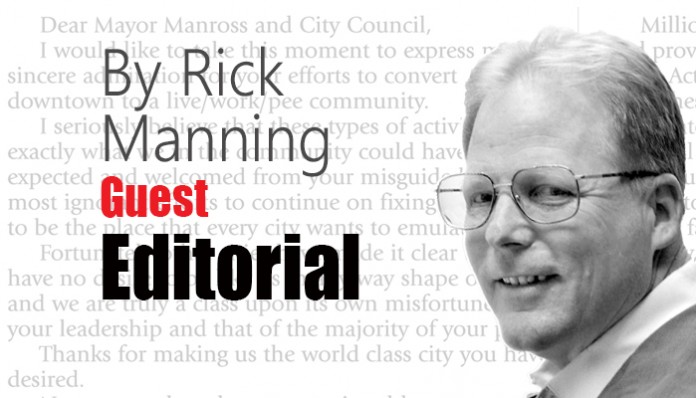The beauty and lifeblood of the First Amendment is that it encourages a diversity of opinions to compete in the marketplace of ideas. Yet, sadly, as we witnessed in the last presidential election and even more so today, America’s consolidated corporate media monopolies have launched an all-out assault on democracy by trying to stamp out the expression of any ideas that don’t fall in line with liberal-determined political correctness.
The latest front in this battle is now at the doorstep of the Department of Justice as it considers the proposed merger between media and information giants — AT&T and Time Warner — a merger which President Trump rightly slammed during the campaign. A decision on the merger, which could come any day now, is fraught with danger.
Currently, AT&T owns the No. 1 pay TV company (26 million subscribers), the No. 2 wireless company (134 million subscribers), the No. 3 internet service provider (16 million subscribers) and was the world’s largest telecommunications company by revenue with $163 billion in revenue in 2016 alone.
For its part, Time Warner owns CNN, one of the world’s largest news networks, three of the top five general entertainment cable networks in TBS, TNT and HBO — the leading premium-cable provider and the No. 2 movie studio, by box office revenue, in Warner Bros.
If approved, this media marriage would give two mammoth organizations an inordinate amount of power to control not only the information that flows onto our computers and televisions, but also the viewpoints that are expressed in that programming.
For example, this merger could give CNN even more influence and power than they enjoy today. Yes, I’m talking about the “Clinton News Network” that repeatedly presented fake and dishonest news designed to influence the 2016 presidential election outcome.
Additionally, networks like CNN paid for polling that continually marginalized Trump or likely Trump voters from their surveys. This allowed them to run with stories that grossly exaggerated Hillary Clinton’s lead, a lead which Election Day proved did not exist. No doubt, the effect of this kind of polling shenanigans was intended to discourage Trump voters from participating in what was being presented at the time as a hopeless race.
If the merger goes through, AT&T’s powerful reach into our homes and computers would give them the ability to increase the power of their own networks — like CNN. CNN and its biased news could gain higher visibility and AT&T could also make it more difficult or impossible for consumers to find conservative or more-balanced news alternatives. The last thing we need is a corporate giant that makes CNN and other networks it owns even more powerful.
In the waning weeks of the 2016 campaign, Donald Trump regularly went directly to the voters, bashing CNN and other outlets for presenting false narratives designed to influence the election outcome. It was this recognition of the power of the media monopolies over what the people learned about him and his campaign which led Trump to unequivocally state on Oct. 22 in Gettysburg, Pa., that news organizations were trying to “suppress my vote and the voice of the American people.”
It was an explosive charge, but a correct one because it gets to the heart of the danger the massive media monopolies pose to American democracy in the 21st century.
In that same Gettysburg speech, President Trump called out the AT&T and Time Warner merger “as an example of the power structure I’m fighting.”
President Trump clearly stated that under his administration the AT&T/Time Warner merger would be stopped because it was not in America’s best interest. Now, he needs to keep his promise by telling his Justice Department to kill the deal because it puts too much power in the hands of a corporate media conglomerate and endangers free speech.
Richard Manning is the President of Americans for Limited Government.





